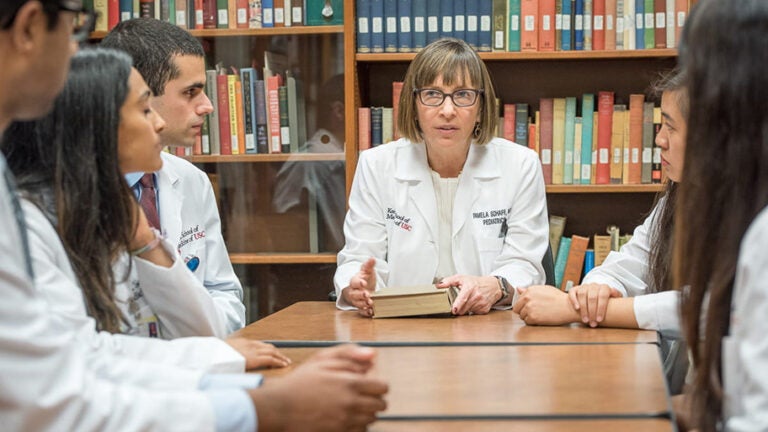
Physician and USC Dornsife PhD in creative writing and literature alumna brings narrative medicine to USC
Rate your pain from 1 to 10.
Many people who have been to the doctor have been asked to do this. But, the field of narrative medicine argues that this momentary question may miss the point if it doesn’t include a background story.
This is the problem narrative medicine hopes to solve. By focusing on patient’s stories, medical professionals can bear witness, absorb, make sense of, and act upon the stories and the traumas of others to enhance healing.
“When the field was founded, it was really to address some of the issues that I think that patients and physicians alike are continuing to experience,” said Pamela Schaff, who earned her PhD in creative writing and literature in 2019 at the USC Dornsife College of Letters, Arts and Sciences.
Schaff now directs the Narrative Medicine program at Keck School of Medicine of USC.
The program offers courses in literary studies, creative writing, philosophy, anthropology and sociology — many of them taught by USC Dornsife faculty and former faculty — through a medical lens.
Students in the Narrative Studies program — just the second of its kind in the country — include working professionals as well as medical students and other graduates from various fields such as anthropology. They learn more than just bedside manner, Schaff said.
“If our students can learn what to do with stories, for instance through skills of close reading in a literature classroom, where students analyze details in a text, we believe that translates into improved clinical care for patients.”